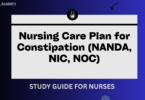Understanding what qualifies a patient for skilled nursing care is essential for ensuring individuals receive the appropriate level of medical assistance and support. This article explores the various criteria and considerations involved in determining eligibility for skilled nursing care.
Medical Necessity
- At the core of qualifying for skilled nursing care is a medical necessity. This means that the patient’s medical condition must require the level of care and supervision that skilled nursing facilities can provide.
- Whether it’s wound care, rehabilitation therapy, IV therapy, or managing complex medical conditions, the need must be deemed essential by healthcare professionals.
Physician’s Assessment
- A crucial aspect of qualifying for skilled nursing care is a physician’s assessment. A licensed physician must evaluate the patient’s medical needs and determine that skilled nursing care is necessary for their health and well-being.
- This assessment is typically provided in the form of a written order, outlining the specific care and services required.
Specific Services are needed.
- Patients may qualify for skilled nursing care if they require specific services that can only be provided by licensed healthcare professionals.
- These services may include skilled nursing care, physical therapy, occupational therapy, speech therapy, and medical social services.
Rehabilitation Services
- Patients who require rehabilitation services to regain function and mobility after an illness, injury, or surgery may also qualify for skilled nursing care.
- This could involve intensive physical therapy, occupational therapy, or speech therapy sessions to help the patient achieve their maximum level of independence and functioning.
Complex Medical Conditions
- Individuals with complex medical conditions that require ongoing medical management and supervision may qualify for skilled nursing care.
- Conditions such as chronic diseases, respiratory disorders, neurological disorders, or post-surgical complications may necessitate skilled nursing care to ensure proper monitoring and treatment.
Safety Concerns
- Safety concerns play a significant role in qualifying patients for skilled nursing care. If a patient is unable to safely perform activities of daily living (ADLs) due to physical or cognitive limitations, they may require skilled nursing care to ensure their safety and well-being. This could include assistance with tasks such as bathing, dressing, toileting, and eating.
Continuous Monitoring
- Patients who require continuous monitoring of vital signs, medication administration, wound care, or other medical interventions may qualify for skilled nursing care.
- Skilled nursing facilities are equipped to provide round-the-clock monitoring and supervision to ensure patients’ health and safety.
Financial Considerations
- In addition to medical criteria, financial considerations may also impact eligibility for skilled nursing care. Patients may be eligible for coverage through Medicare, Medicaid, private insurance plans, or other financial assistance programs.
- It’s essential to explore all available options and understand the potential costs involved in skilled nursing care.
Family Involvement
- Family involvement is crucial in the qualification process for skilled nursing care. Family members can advocate for their loved one’s needs, provide valuable information about their medical history and preferences, and support them throughout the transition to skilled nursing care.
Legal and Ethical Considerations
- Finally, there are legal and ethical considerations to take into account when qualifying patients for skilled nursing care.
- It’s important to ensure that patients’ rights are respected, and that care is provided in accordance with legal and ethical standards.
- This includes obtaining informed consent, protecting patient privacy and confidentiality, and adhering to professional codes of conduct.
Conclusion
In conclusion, several factors determine what qualifies a patient for skilled nursing care, including medical necessity, physician’s assessment, specific services needed, rehabilitation requirements, safety concerns, continuous monitoring, financial considerations, family involvement, and legal and ethical considerations. By understanding these criteria and working closely with healthcare professionals and family members, individuals can ensure that they receive the appropriate level of care and support in skilled nursing facilities.
FAQs
- What types of medical conditions may qualify a patient for skilled nursing care? Patients with conditions requiring wound care, rehabilitation therapy, IV therapy, or management of complex medical conditions may qualify.
- Can patients receive skilled nursing care at home? In some cases, skilled nursing care may be provided in a patient’s home through home health agencies. However, eligibility criteria may vary.
- How long does a patient typically stay in a skilled nursing facility? The length of stay in a skilled nursing facility varies depending on the patient’s medical needs and progress in rehabilitation.
- Does insurance cover the cost of skilled nursing care? Medicare and Medicaid may cover some or all of the costs of skilled nursing care for eligible individuals. Private insurance plans may also provide coverage.
- What role do family members play in the qualification process for skilled nursing care? Family members can provide valuable information about the patient’s medical history, preferences, and support needs, and advocate for their loved one’s care and well-being.







